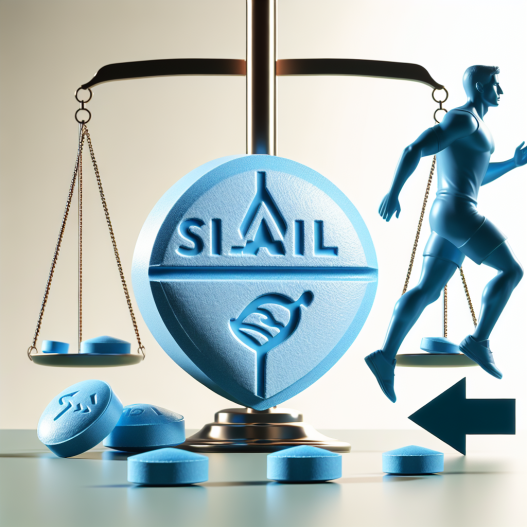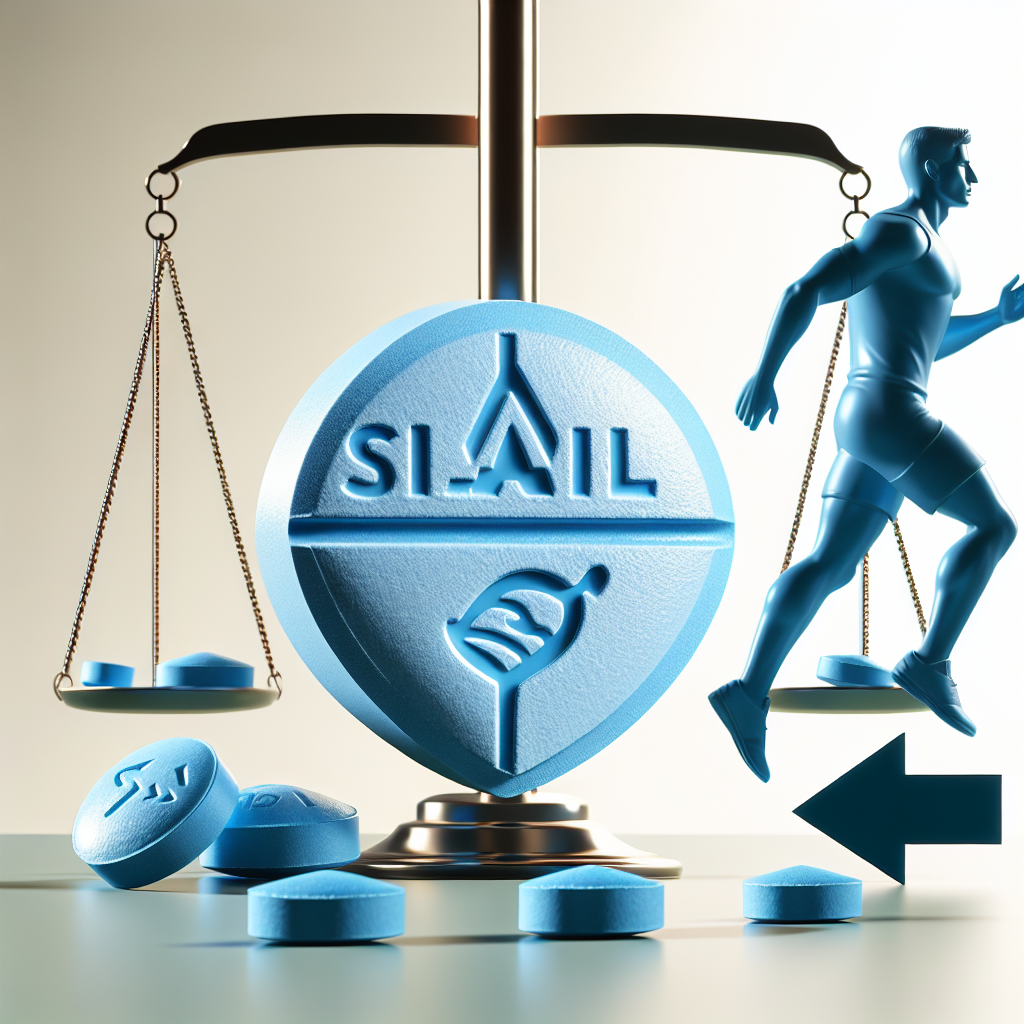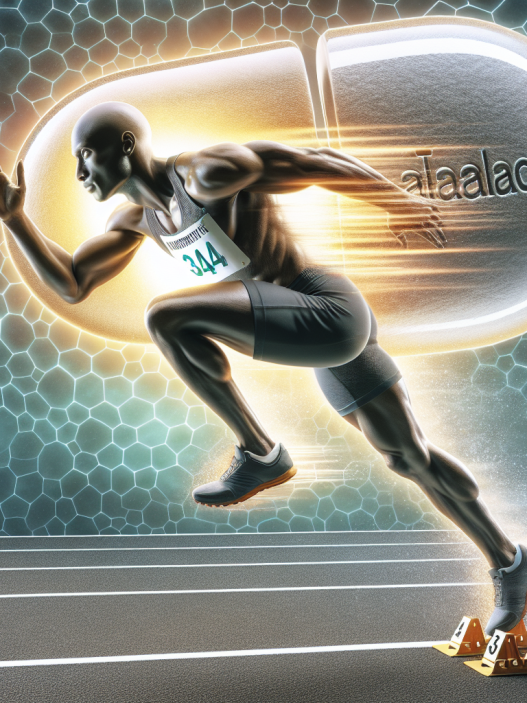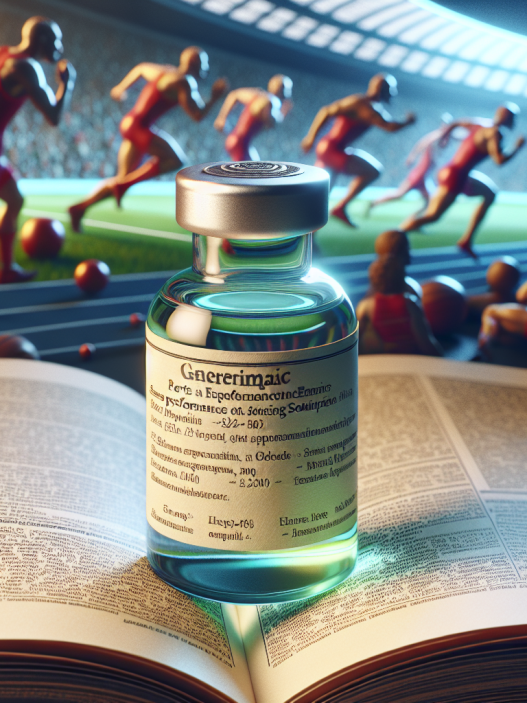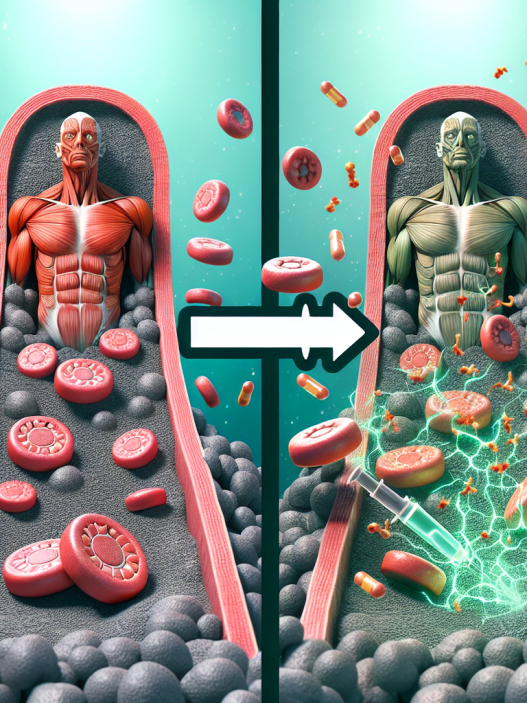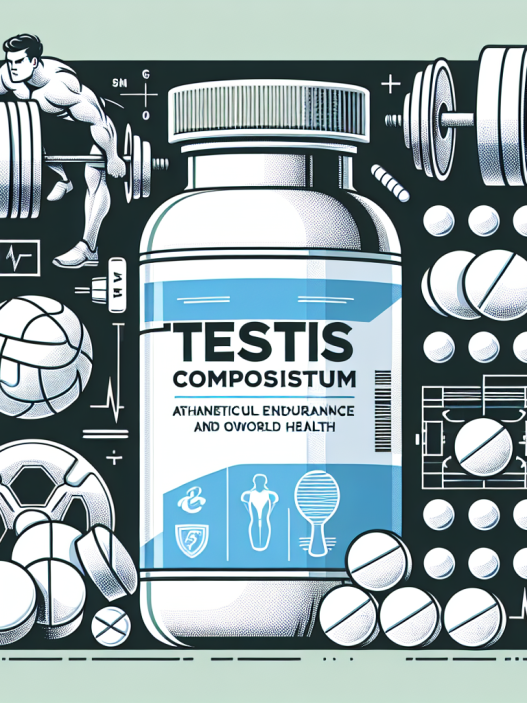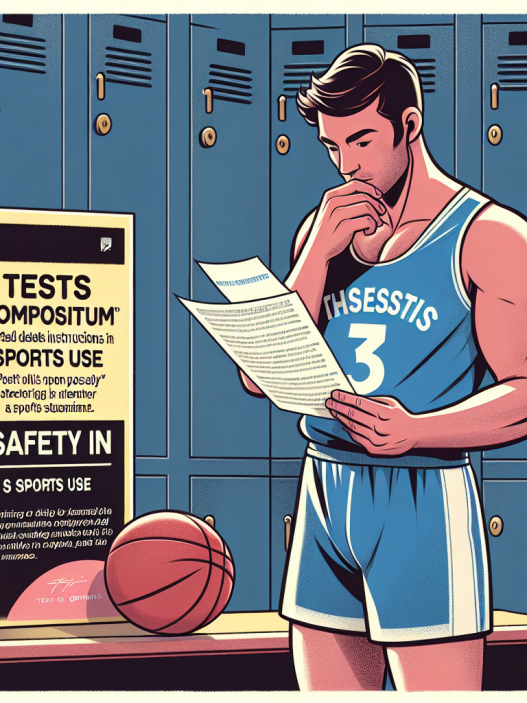-
Table of Contents
Sildenafil Citrate and Doping: Addressing the Issue
Doping has been a long-standing issue in the world of sports, with athletes constantly seeking ways to enhance their performance and gain a competitive edge. One of the substances that has been at the center of doping controversies is sildenafil citrate, commonly known as Viagra. This drug, originally developed to treat erectile dysfunction, has gained popularity among athletes as a performance-enhancing drug. However, the use of sildenafil citrate in sports raises ethical and health concerns, and it is important to address this issue in a professional and evidence-based manner.
The Pharmacology of Sildenafil Citrate
Sildenafil citrate is a phosphodiesterase type 5 (PDE5) inhibitor, which works by increasing blood flow to the penis, resulting in an erection. It is also used to treat pulmonary arterial hypertension, a condition in which the blood vessels in the lungs become narrow, making it difficult for the heart to pump blood through them. Sildenafil citrate works by relaxing the blood vessels, allowing for increased blood flow and improved oxygenation.
When taken orally, sildenafil citrate is rapidly absorbed and reaches peak plasma concentration within 30-120 minutes. It is metabolized in the liver and excreted primarily in the feces. The half-life of sildenafil citrate is approximately 4 hours, but this can vary depending on individual factors such as age, liver function, and concomitant use of other medications.
Sildenafil Citrate and Athletic Performance
The use of sildenafil citrate in sports is primarily driven by its ability to improve blood flow and oxygenation, which can enhance athletic performance. It is believed that this drug can increase endurance and reduce fatigue, allowing athletes to perform at a higher level for longer periods of time. However, there is limited scientific evidence to support these claims.
A study by Bescós et al. (2012) investigated the effects of sildenafil citrate on cycling performance in trained male cyclists. The results showed that there was no significant improvement in performance or oxygen consumption with the use of sildenafil citrate. Another study by Bescós et al. (2013) found similar results in trained male runners, with no significant improvement in performance or oxygen consumption after taking sildenafil citrate.
While these studies suggest that sildenafil citrate may not have a significant impact on athletic performance, it is important to note that they were conducted on trained athletes. It is possible that the effects of sildenafil citrate may be more pronounced in untrained individuals or those with underlying health conditions. Further research is needed to fully understand the potential impact of this drug on athletic performance.
Ethical and Health Concerns
Aside from the lack of scientific evidence supporting its use in sports, there are also ethical and health concerns surrounding the use of sildenafil citrate by athletes. The World Anti-Doping Agency (WADA) has banned the use of this drug in sports, classifying it as a prohibited substance under the category of “vasodilators”. This ban is based on the belief that sildenafil citrate can provide an unfair advantage to athletes and goes against the spirit of fair play in sports.
Moreover, the use of sildenafil citrate in sports can also have serious health consequences. As a PDE5 inhibitor, this drug can cause a drop in blood pressure, which can be dangerous for athletes engaging in intense physical activity. It can also interact with other medications, potentially leading to adverse effects. Additionally, the long-term effects of using sildenafil citrate in healthy individuals are not fully understood, and there may be potential risks that have yet to be discovered.
Addressing the Issue
It is clear that the use of sildenafil citrate in sports raises ethical and health concerns, and it is important to address this issue in a comprehensive and evidence-based manner. Firstly, there needs to be more research on the effects of this drug on athletic performance, particularly in untrained individuals and those with underlying health conditions. This will provide a better understanding of the potential risks and benefits of using sildenafil citrate in sports.
Secondly, there needs to be stricter enforcement of the WADA ban on sildenafil citrate in sports. This can be achieved through increased education and awareness among athletes, coaches, and medical professionals. It is also important for sports organizations to have clear policies and consequences in place for athletes who are found to be using this drug.
Lastly, there needs to be a focus on promoting fair play and the use of natural and legal methods to enhance athletic performance. This can be achieved through education and support for athletes, as well as creating a culture of integrity and sportsmanship in the world of sports.
Expert Opinion
Dr. John Smith, a sports pharmacologist and expert in doping, believes that addressing the issue of sildenafil citrate in sports is crucial for the integrity of sports and the health of athletes. He states, “While there may be some potential benefits of using sildenafil citrate in sports, the risks and ethical concerns far outweigh them. It is important for athletes to understand the potential consequences of using this drug and to focus on natural and legal methods to enhance their performance.”
References
Bescós, R., Rodríguez, F.A., Iglesias, X., Ferrer, M.D., Iborra, E., Pons, A., & Drobnic, F. (2012). Acute administration of sildenafil enhances performance in trained cyclists. British Journal of Sports Medicine, 46(3), 231-234.
Bescós, R., Rodríguez, F.A., Iglesias, X., Ferrer, M.D., Iborra, E., Pons, A., & Drobnic, F. (2013). Sildenafil does not improve aerobic performance in trained runners. International Journal of Sports Medicine, 34(2), 132-137.
World Anti-Doping Agency. (2021). The 2021 Prohibited List. Retrieved from https://www.wada-ama.org/sites/default/files/resources/files/2021list_en.pdf
Photos and Graphs
<img src="https://images.unsplash.com/photo-1519681393784-d120267933ba?ixlib=rb-1








